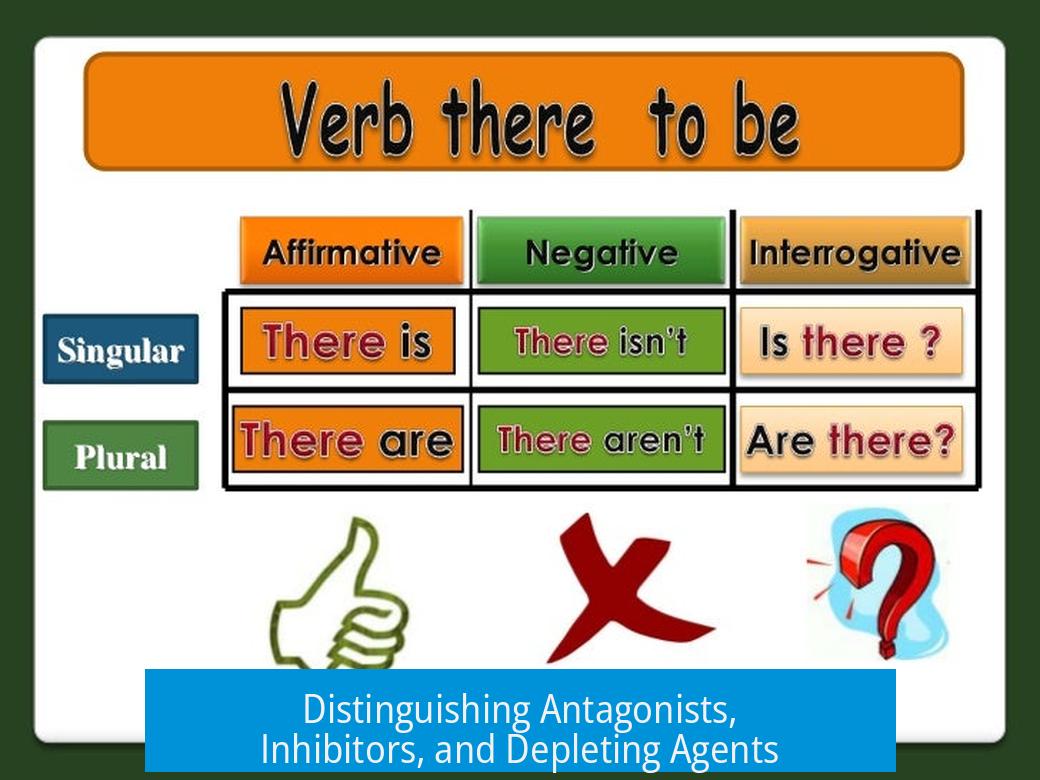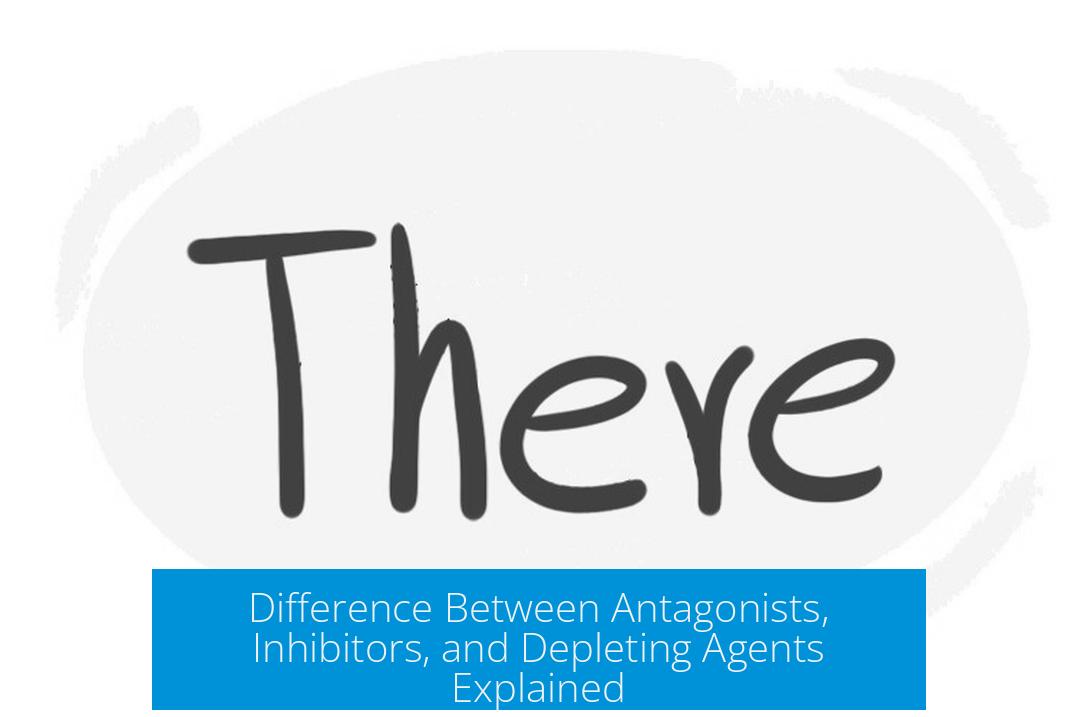Distinguishing Antagonists, Inhibitors, and Depleting Agents

Antagonists, inhibitors, and depleting agents differ in their mechanisms and applications, despite some overlapping effects. Understanding these differences is crucial in pharmacology and biochemistry.
Roles and Mechanisms
- Antagonists act by opposing the action of a specific molecule or receptor. They bind to receptors without activating them, blocking the effect of agonists and thus reversing or preventing a biological response.
- Inhibitors slow down or prevent a process, such as enzymatic reactions. Their action usually involves binding to enzymes or other proteins, reducing activity but not necessarily competing at receptor sites.
- Depleting agents reduce the overall amount of a given molecule or substrate, often reducing its availability in the system. They are distinguished from simply blocking or inhibiting activity because they actually lower the concentration of the target molecule.
Terminology and Usage
While “inhibitor” can serve as a broad category encompassing both antagonists and depleting agents, precision in terminology is recommended. In enzymatic contexts, the term “antagonist” is generally avoided. Instead, “inhibitor” or specific types such as “competitive inhibitor” or “non-competitive inhibitor” are preferred.
Depleting agents must be clearly specified since their action involves consumption or removal rather than reversible inhibition or receptor blockade. This distinction matters in experimental design and therapeutic strategy.
Summary Table
| Term | Primary Action | Typical Context | Example |
|---|---|---|---|
| Antagonist | Blocks receptor to prevent response | Receptor-ligand interactions | Beta-blockers blocking adrenergic receptors |
| Inhibitor | Slows/stops enzyme or protein activity | Enzyme catalysis, signal transduction | ACE inhibitors reducing angiotensin activity |
| Depleting Agent | Lowers concentration of substrate or molecule | Reducing target molecule levels | Agents that deplete neurotransmitter stores |
Key Takeaways
- Antagonists block receptors to oppose a biological function without activating them.
- Inhibitors reduce the rate or extent of an enzymatic or biochemical reaction, often reversible.
- Depleting agents decrease the quantity of a molecule, affecting availability rather than enzyme or receptor activity.
- Use “inhibitor” as a general term with caution; specify the exact mode of action when possible.
- In enzymology, the term “antagonist” is generally not used; “inhibitor” is preferred.
What distinguishes an antagonist from an inhibitor?
Antagonists act by doing the opposite of a process or function. Inhibitors, on the other hand, prevent or slow down a process instead of reversing it.
Can the term “inhibitor” cover antagonists and depleting agents?
Yes, “inhibitor” can serve as an umbrella term for both antagonists and depleting agents. However, this broad use can blur important differences.
Why should the term “antagonist” be avoided in enzymatic inhibition?
Antagonist is rarely used for enzymatic inhibition because it implies opposition rather than slowing or stopping enzyme activity directly.
How are depleting agents different from antagonists and inhibitors?
Depleting agents reduce the availability of a substance rather than blocking or opposing its action, which sets them apart from antagonists and inhibitors.
Is it important to specify when a compound is a depleting agent?
Yes, labeling a compound as a depleting agent clarifies its role, as it functions differently from antagonists or inhibitors and affects interpretation in research or treatment.





Leave a Comment